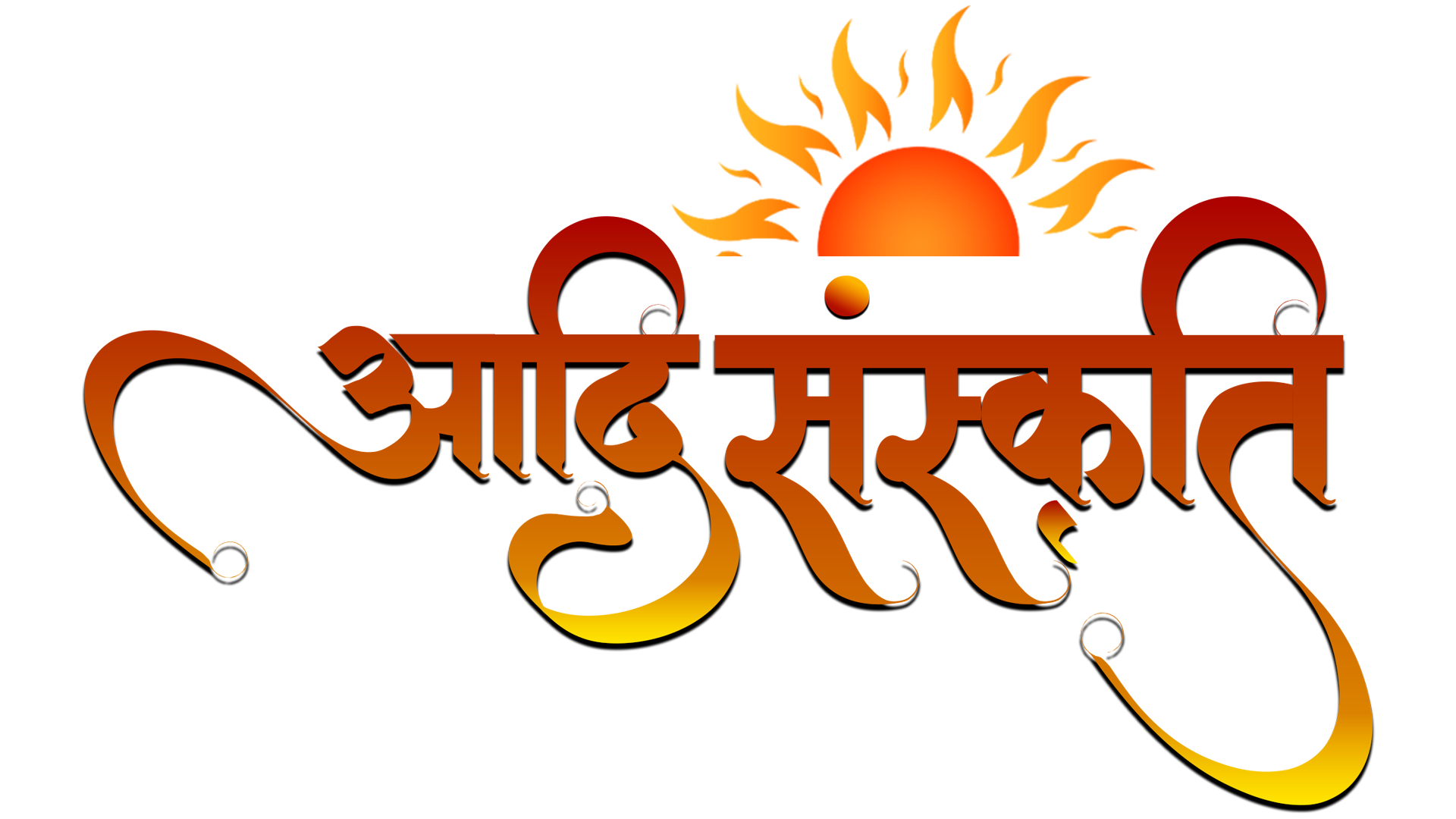
Themes
tribal languages and literature
BOLI ( Tribal Poem), jammu & kashmir

Javed Rahi is one of the finest poets and writers in Gojri, Urdu, and Punjabi. His works usually delve into some very heavy themes of cultural and spiritual significance, dealing directly mostly with issues concerning the Gujjar tribe and the broader pastoral communities. This poet has understood how to capture spirituality in his poems since most of his writings delve into human connectivity with divinity, with an understanding of reverence and appreciation in this context of a cultural background. His distinct voice gives literature an insight into tribal life and beliefs.
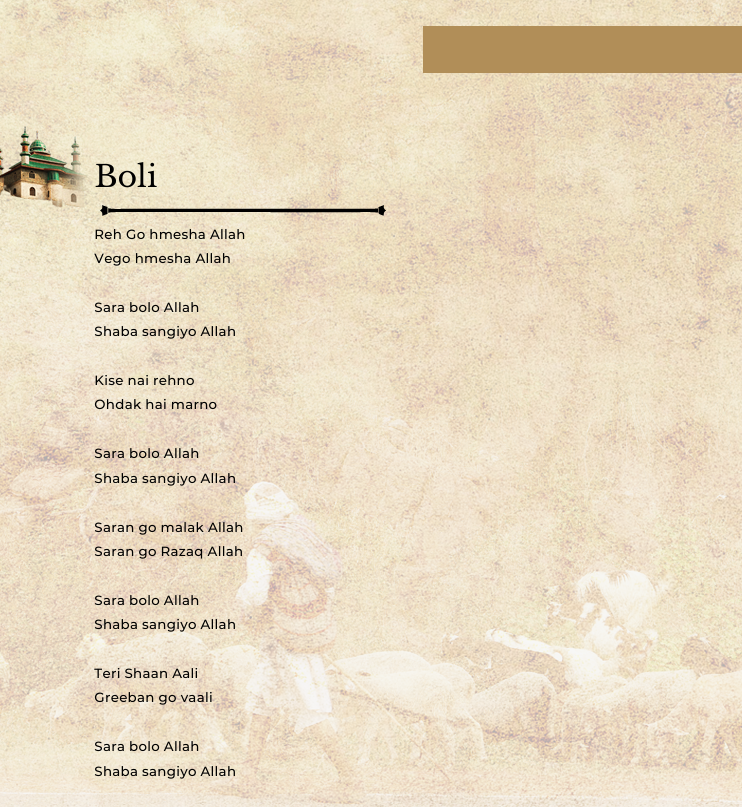
"Boli" repeats a simple and rhythmic structure, wherein each line solidifies the theme of invocation and awe of Allah. Each stanza encourages spontaneous offering from the devotee, thus creating a prayer-like rhythm that speaks of unity. This form makes "Boli" appear very much like a song where repetition reinforces the message of the poem and builds its spiritual impact. Each stanza uses simple and common language, with each line building on the previous one; thus, shaping the poem into a meditative chant for communal devotion.
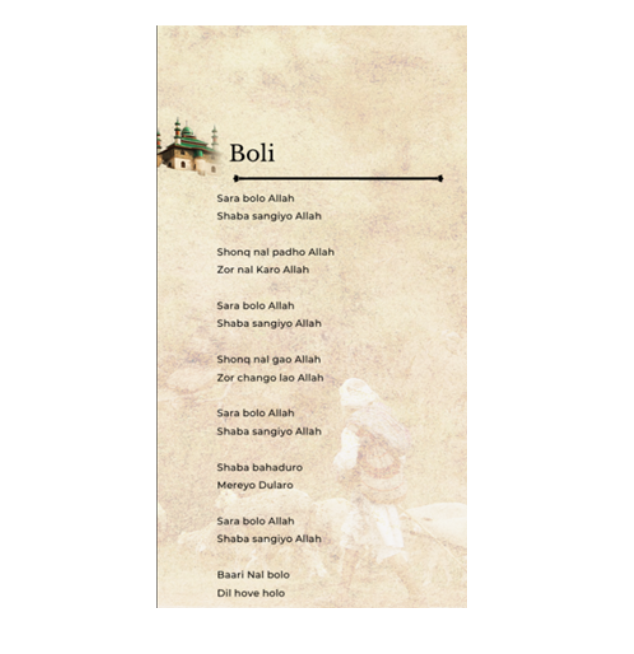
"Boli" employs a repetitive rhyme scheme that strengthens the rhythmic and collective oneness of the verses. The rhyme scheme is simple and lends a natural flow that expresses the devotion of the chant. The said scheme also mirrors the steady rhythm of traditional recitation, which is easy for listeners to memorize and recite to one another. By an application of repetition through the structure, Rahi ensures that the central idea of the poem holds a massive impact while remaining accessible, a public affirmation of faith.
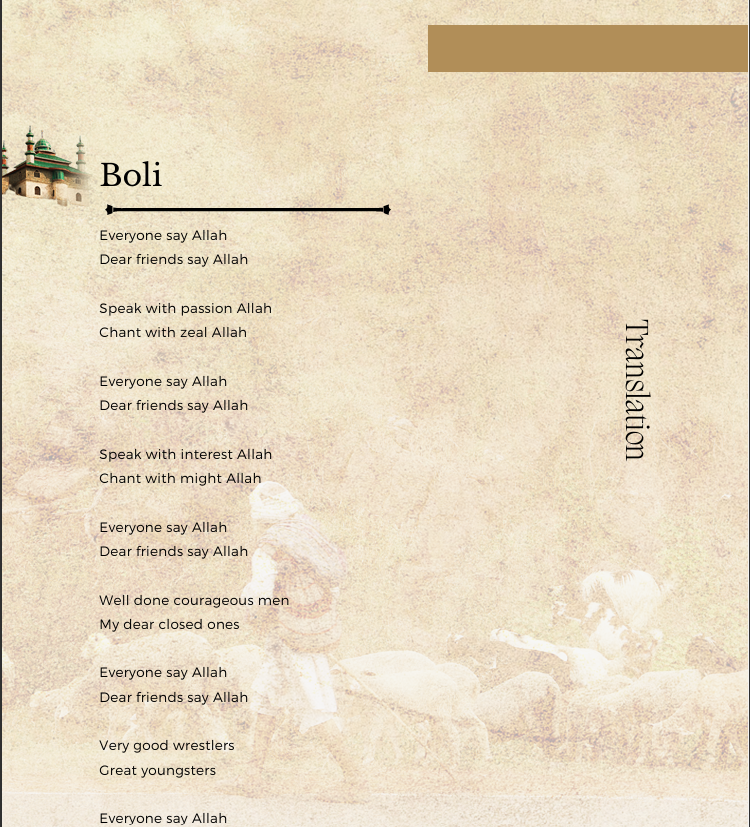
The mood of "Boli" is reverent and passionate, fostering a sense of unity and spiritual focus. Through affirmations of Allah’s attributes, the theme of the poem centers on divine worship, protection, and grace. It captures emotions of devotion, humility, and communal strength, reminding readers of mortality and dependence on Allah. By invoking Allah’s blessings and mercy, Rahi crafts a message of submission to divine will, highlighting the human reliance on a greater, benevolent force.
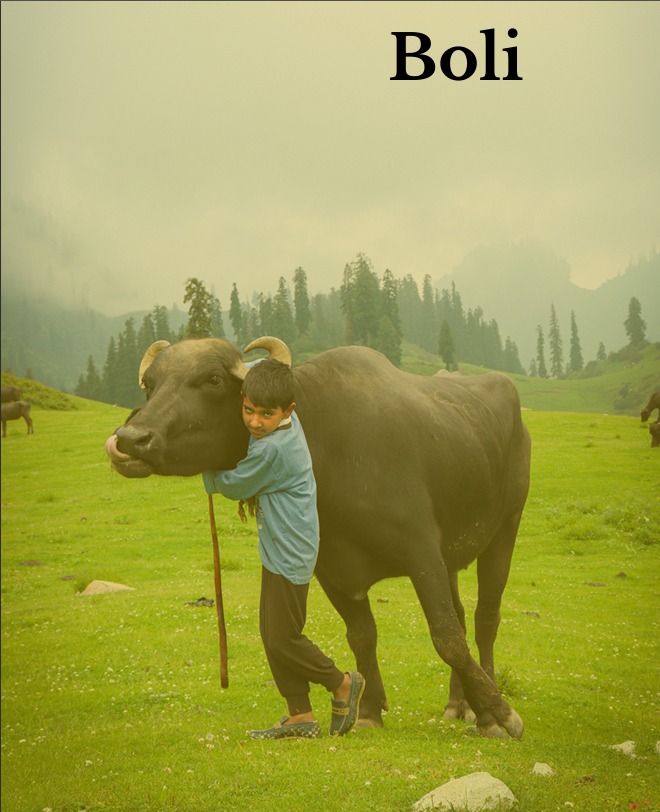
The poem "Boli" is visually centered on the invocation of Allah’s name, with repeated phrases reinforcing its devotional tone. The poem’s structure, focused on line-by-line repetition, visually reinforces unity and spiritual resonance on the page. Each line aligns with the preceding lines, creating a sense of cohesion and uniformity. This arrangement symbolizes a collective prayer, emphasizing the universal nature of faith across individuals. By centering on simplicity, Rahi effectively conveys the essence of communal spirituality.
